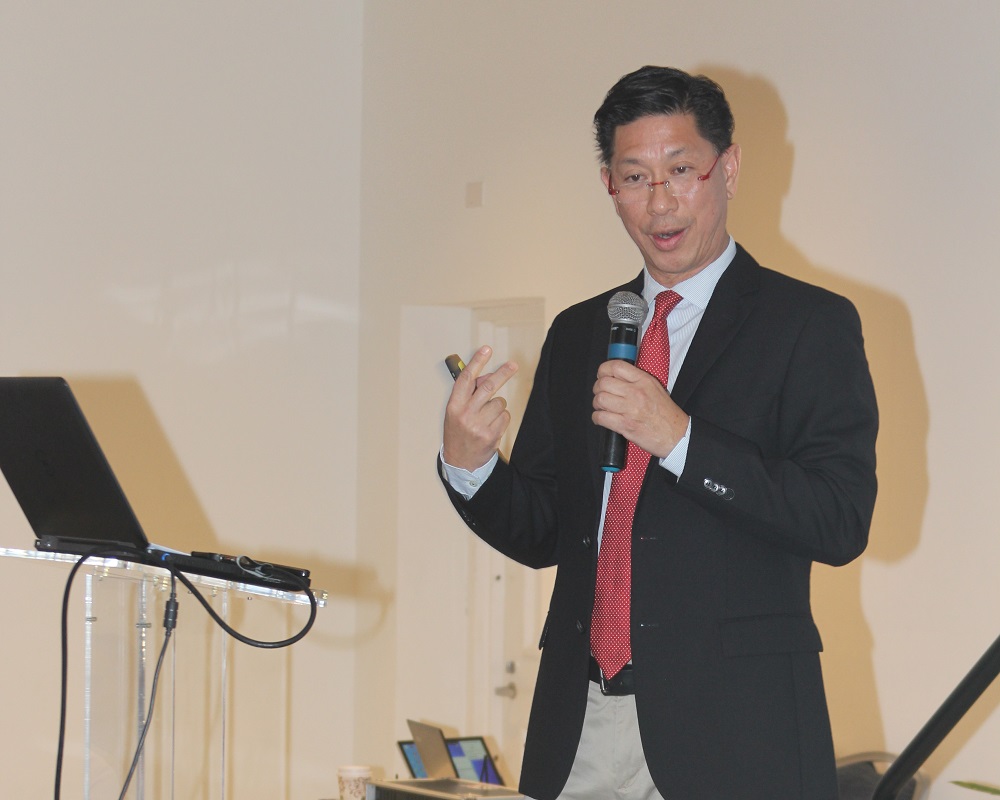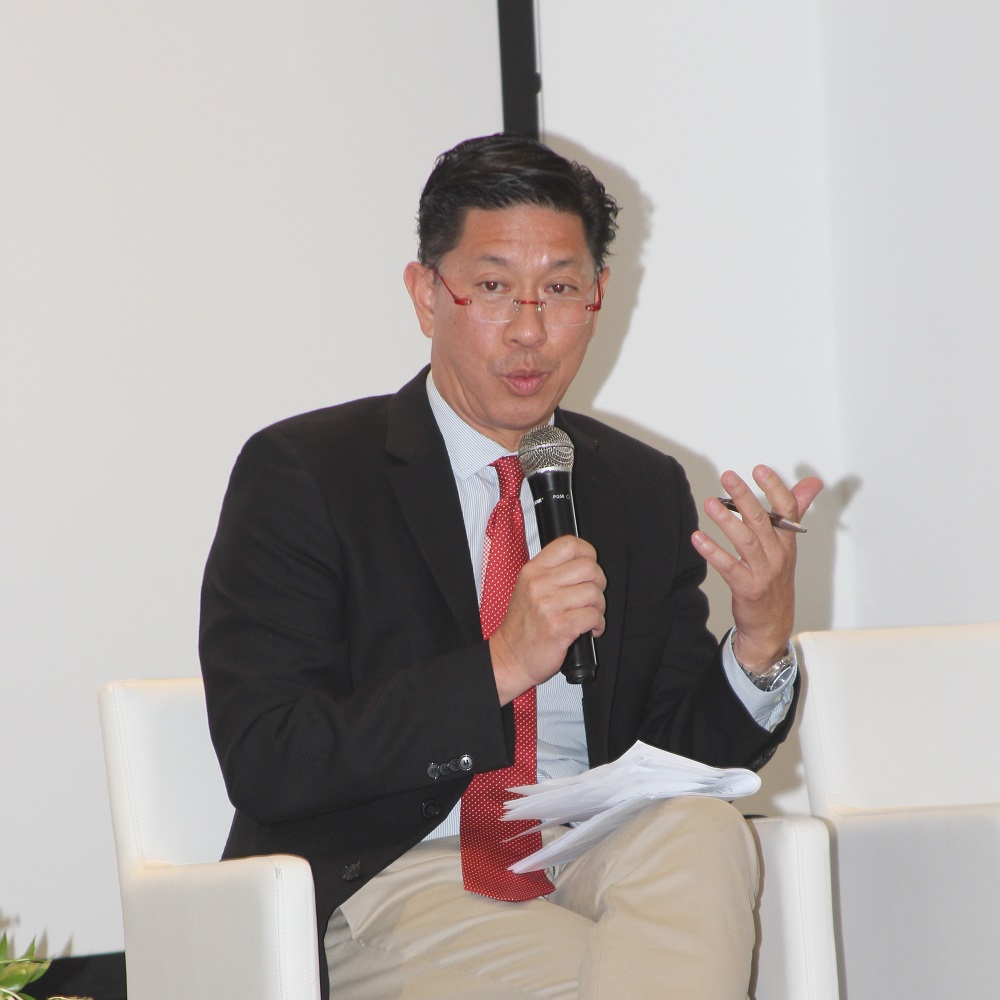Former Minister of VSA Emil Lee keynote speaker at the 13th Caribbean Conference on National Health Financing Initiatives
THE VALLEY, ANGUILLA — Former Minister of Public Health, Labor and Social Development, Emil Lee, was invited to participate as a keynote speaker at the 13th Caribbean Conference on National Health Financing Initiatives held in Anguilla at the Cuisinart Resort on Monday November 4th. The conference seeks to provide a platform for participants to share their experiences and to learn from other professionals in the field of healthcare. Mr. Lee’s keynote address was entitled, “A Practical, Political and Financial Perspective on Universal Health: The St. Maarten Experience“.
“While a lot of time is spent on the technical and financial process, the process to get the politicians and the public to understand and support the effort should not be underestimated. The draft General Health Insurance (GHI) legislation for St. Maarten is currently waiting for the Council of Ministers to approve its transmission to Parliament for debate. However, based on the recent political changes, the Government’s plan remains unclear.” – Emil Lee
In his presentation, Mr. Lee provided a brief background on the evolution of health care and financing structures in St. Maarten, explaining how St. Maarten originally inherited a legal structure from the Netherlands Antilles, and how that legal structure is now outdated and in critical need of reform. Additionally, Mr. Lee outlined how changes and the failure to provide appropriate financial compensation to the groups covered by the various health insurance funds have led to structural financial challenges for those funds, as well as to the government’s debt of $50 million dollars to SZV.
Besides explaining the process, Mr. Lee offered a number of recommendations:
· He suggested that it is important to understand that the technical, financial/economic, political and social processes are all very different processes, but that the end result of these processes needs to result in one cohesive proposal.
· Second, work on addressing the costs of healthcare, efficiency and effectiveness need to happen in parallel to efforts toward passing legislation. For example, it is equally important to strengthen and support the primary care givers (i.e. family physicians), to focus on prevention programs, training for all levels of the healthcare delivery chain, to tackle prescription drug costs, to integrate health in all policies, and to ensure cross-ministerial cooperation.
· Third, Mr. Lee suggested that governments should ensure that legislation provide for flexibility. The healthcare sector changes at a fast pace so legislation needs to permit the system to adapt as needed without lengthy administrative delays.
· Fourth, it is critical to provide in the legislation for each country’s undocumented population. Decisions must be made – to cover individuals, fully or at some level, or not to provide coverage – but to offer no response is not productive.
As part of the presentation, Mr. Lee challenged participants to consider the difficult and fundamental questions that remain in this important area, relevant throughout the Caribbean. Notwithstanding our differences, each country grapples with similar hurdles:
• Should there be different packages or levels of care for different groups of residents or citizens?
• What kind of health financing model is suitable for each country?
• What is an acceptable or desired level of care for your country? Is there a basic or minimum level that all should receive?
• Are there limits to the care? Financial limits?
• What are each citizen’s responsibilities? What are their obligations to maintain a good level of health?
• How do we improve our citizens’ quality of life? What efforts toward prevention should be made?
• How do we improve primary care? What is the role of the family doctor in maintaining the health of the population and how should they be compensated for keeping the population healthy?
• How do we create incentives for citizens to maintain their good health? What is the role of “sin taxes?”
• How can we improve transparency in health care costs?
• Should coverage vary based on resident status or time paying into the system?
The majority of countries throughout the Caribbean are working toward or already provide some form of universal health coverage (UHC) in their health care framework. The World Health Organization (WHO) explains that UHC “means that all people and communities can use the promotive, preventive, curative, rehabilitative and palliative health services they need, of sufficient quality to be effective, while also ensuring that the use of these services does not expose the user to financial hardship.” While all of the countries in attendance are working towards delivering UHC to their residents, they also are struggling to identify a financially sustainable model for now and the future.
Mr. Lee concluded his presentation by stating, “While most of us agree that access to appropriate healthcare is a fundamental human right, there are hard questions that need to be asked and answered. They will not be easy questions to answer. The discussions won’t be comfortable but it is a critical part of the process.”
Photo captions: Mr. Emil Lee, former Minister of VSA during his keynote presentation at the 13th Caribbean Conference on National Health Financing Initiatives.
###
Related articles:
National Health Financing in the spotlight on Anguilla




























